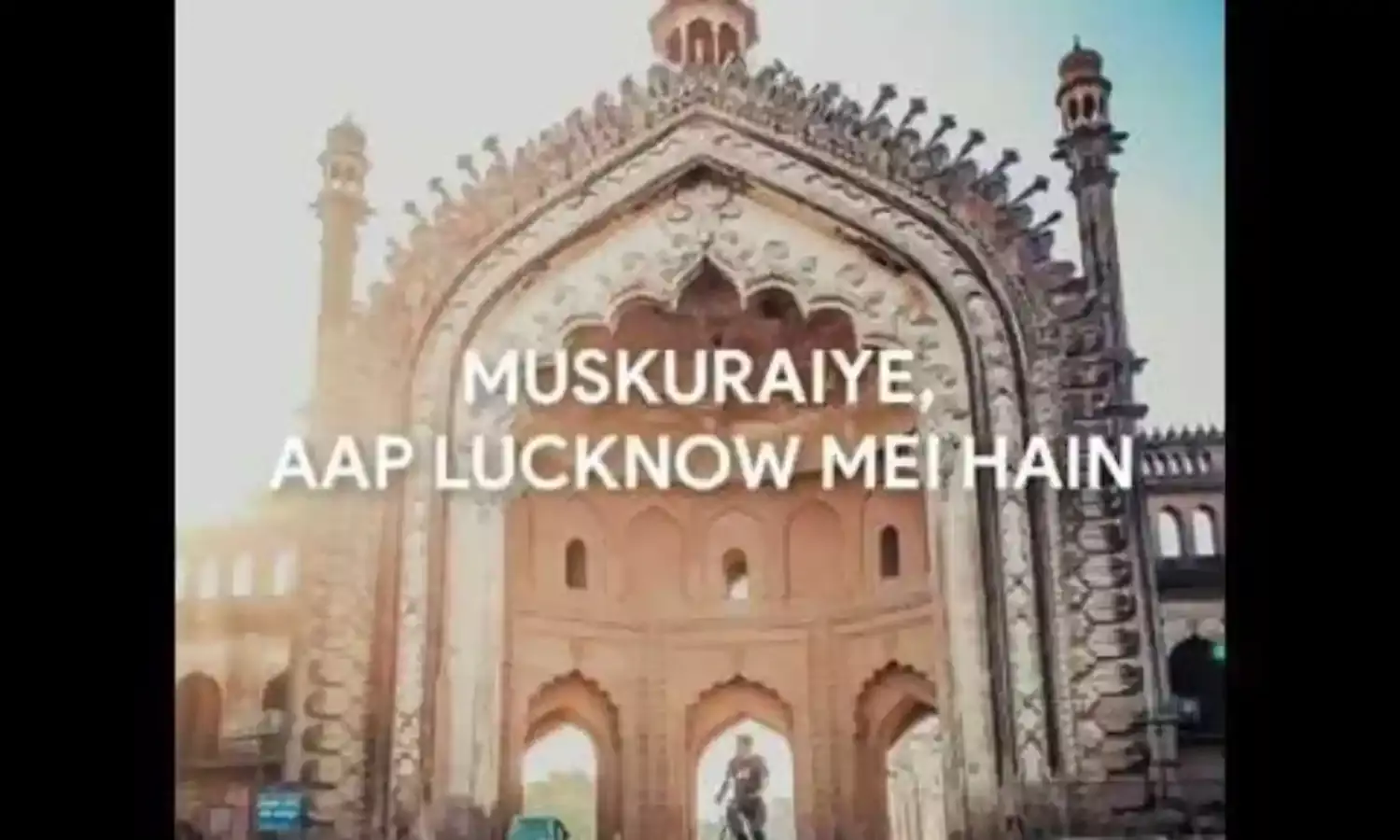
This piece is about the fast retreating and diminishing face of Lakhnau, and the domineering assertion of an insipid New Lucknow that militates against sensibilities.
As I returned from Lucknow - or its raspier colloquial pronunciation of Lakhnau - a feeling of discomfiting change afoot made the heart sink with foreboding. ‘Progress’ was clearly taking its toll on the soul of an emotion called Lakhnau.
I spoke to a dear friend, another torn soul, who likened Lakhnau to a once ravishingly beautiful lady, well past her youthful prime, but one who still has a softness, genteelness and delicacy that no longer appeals to new beholders.
He laughed with all the sadness inside, “We are the faithful lovers of this now-shy lady, till the last day of our lives, and shall remain so no matter what!”
My old Lakhnau of memories, dreams and imagination gently fades into the oblivion of the soon-to-be-unseen. The Gomti river snakes through the city, that once nurtured a syncretic, generous and harmonious metaphor called the Ganga-Jamuni tehzeeb. Today it flows silently, forgotten and trapped in harsh concrete and steel.
The civilisational contribution of Lucknow would be the unmatched eloquence of its taksali zubaan, that would seamlessly blend the multiculturality of a Shia, Sunni, Brahmin, Kayasth, Sikh, Rajput, Punjabi, Anglo-Indian, all quintessentially, unquestionably and uniquely Lakhnauis.
The city afforded a most compelling rebuttal to ‘the theory of two nations’ – land of poets, dreamers, hawkers, horsemen, traders and even sometimes debauched rulers.
All diversities remained unharmed in the serene aabo hawa (air of the times) of tehzeeb (manner), nafasat (sophistication), adab (respect), nazaqat (style) and tameez (courtesy). Only a hoarding at the magnificent Charbagh railway station could welcome you with, ‘Muskaraiye, aap Lakhnau mein hain’ (Smile, you are in Lucknow)!
Lakhnau is essentially a ‘sound’ that could be recognised with eyes shut, as only here could one say, ‘aap ke paaon ke neeche dil hai, ek zarra, aapko zehmat hogi’ – literally, my heart lies under your feet, please consider gently, and I regret the trouble to you – nuances that could never be spoken in a Kanpur, Hyderabad or even Aligarh!
Quaint monuments that once resonated and came alive to the sounds of thumris and khayals, courtesans dancing to kathak, shair-o-shairi and housed the most intricate handwork chikankari like mukaish, kamdani, badla, sequin work, are now struggling for relevance in ‘modernity’.
A new Lucknow is on the horizon, with tall cold buildings and a retinue of template restaurants, bulging malls, branded promises and a completely alien ‘main’ (as opposed to a softer ‘hum’) and ‘tum’ (in contrast to a tender aap) gaining currency.
Soulless and gaudy monstrosities of glass and steel dwarf the sublime intricacies of the odd minaret that still peeks through the covered façades of many construction sites, promising even more destruction to come - an unvarying if useless reminder of the bygone Lakhnau, reeling under the onslaught.
A boorish invasion of political sensibilities opposed to the cultural temper has taken over. Everyone is inexplicably angrier, for reasons that mostly exist outside of the city’s boundaries.
The typically calmer pastel colours of traditional Oudhi weaves like lemon-yellow or mehndi-green are giving way to the more suggestive insistences of bright saffron or darker green. The beards have got longer and the burqas more covering, just like the bhagwa tilaks and red maulis.
‘Celebrations of difference’ in the land of inclusivity are fast becoming the norm. Faces of fear or intimidation are rife, with side glances and suspicious whispers replacing the revelries of joint-tafris (aimless wandering) and loud patangbazi (kite flying) of yore.
Lakhnau is seceding to Lucknow, and the beautiful lady knows the writing on the wall. Hopeless lovers of the Lakhnau mystique are feeling helpless, as they see the sure withering of the idyll that once prided itself with expressions like ‘aapki inayat, aapka karam, maula ka ehsaan’!
Linguistically also, there was no old Lakhnau or new Lucknow, but they are two distinct domains now, one rapidly growing. Two contrasting sensibilities are in play, both melting pots – one of the finest breeding and deliberate integration, the other of the inanimate newness that harbours no romance, only divides and excludes.
The now laboured breath of Lakhnau that was once considered eternal, is now in sad neglect, much like the burial sites of its illustrious poets, Mir Babar Ali Anees, Mirza Salaamat Ali Dabeer, Mir Taqi Mir and countless others.
It did not owe itself to any one singular identity, but to the fertile soil that also gave us a Cliff Richard, Brij Narayan Chakbast, Amritlal Nagar, Dr Rosie Llewellyn-Rose and countless others.
Mir’s surreal lines about his own penury are now also apt for my Lakhnau: ‘sirhane Mir ke ahista bolo, abhi tak rote-rote so gaya’ (Speak softly at the bedside of Mir, he has just fallen asleep crying).
I waited on the last day for the lady to somehow reach out to me on her own and ask me to stay back, but she never did. She knew the journey of the supposed eternal had no future.
What finally welled tears in my eyes was at the airport, when the unknown cab driver insisted warmly, ‘Janaab, aap aglee baar aieyega toh zaroor miliyeyga’ (Sir, when you come the next time, please do meet). Translating I realise just how insufficient and poor the English language is to capture these emotions.
New Lucknow is not necessarily bad, it is even required in parts – it’s just that when the new replaces the old, it does so ruthlessly. Lakhnau too needs to survive, not just for itself and all the extraordinary decency and finesse that it inspires, but for that larger ‘Idea of India’ to survive, eternally.
I will keep going back, searching and praying for my Lakhnau, knowing it is a lost cause.

